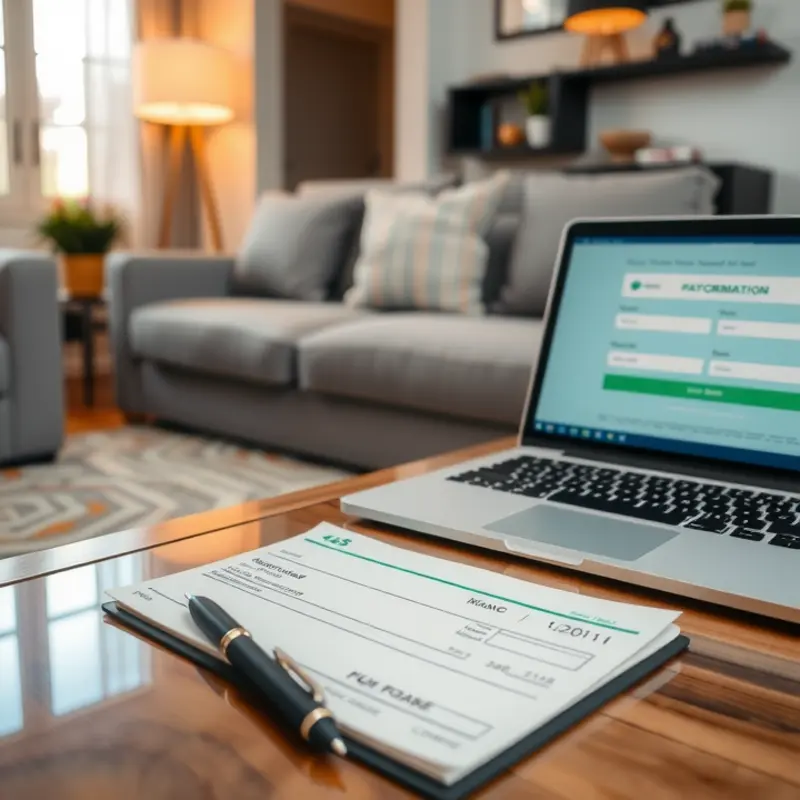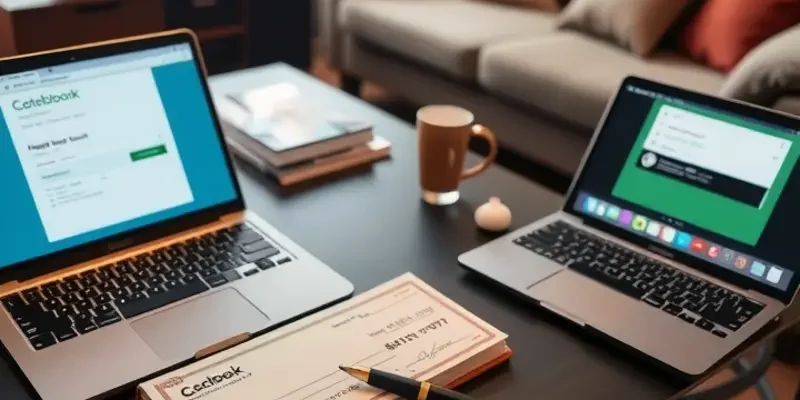Renting your first apartment or house can be both exciting and daunting. For many young professionals, first-time renters, students, couples, and families, understanding how to manage rent payments is crucial for ensuring financial stability. Different payment methods can offer varied benefits such as convenience, security, and budgeting flexibility. Whether you prefer traditional methods like checks or modern solutions like digital wallets, this guide will clarify your options. By exploring various rent payment methods, you will gain insights that empower you to take control of your financial landscape. Let’s dive into the effective payment strategies that can ease your rental journey and help you make informed decisions that suit your lifestyle.
Traditional Payment Methods: Checks and Money Orders

Despite the rise of digital transactions, traditional payment methods like checks and money orders continue to hold relevance in the rental market. Many landlords and property management companies still prefer these methods due to their tangible nature. These traditional tools offer unique advantages, albeit with certain limitations, in ensuring rent payment accountability.
Checks provide a concrete way to document transactions. They are traceable through banks, offering both renters and landlords a paper trail that confirms the amount paid and the recipient. This can be particularly beneficial in rental disputes, where written proof of payment is crucial. However, writing and mailing checks can be inconvenient, especially for young professionals with busy schedules or students who may not use checks frequently. Delays can occur, as checks may take several days to reach the landlord and clear through banking systems.
As an alternative, money orders offer another traditional option. Unlike checks, money orders must be prepaid, which means they cannot bounce due to insufficient funds. This provides landlords with a sense of security, knowing the payment is secure. Money orders are available at various locations such as banks and post offices, making them accessible for those who may not have checking accounts. Nonetheless, they might involve additional fees, and keeping receipts is essential for renters to hold proof of payment.
Safety is a critical aspect of using checks and money orders. Though generally secure, checks can be stolen or altered if not handled properly. It is vital to fill them out completely and keep them in a safe place until mailed or handed over in person. Money orders also require careful handling, as losing the receipt means losing evidence of payment. Using postal services for mailing rent payments requires vigilance to prevent loss or theft in transit.
Accountability in traditional payment methods often hinges on proper record-keeping. Renters should maintain copies of checks or receipts from money orders, along with records of when and where they were sent. This methodical approach not only facilitates easier budget management but can also prove beneficial in case of disputes with landlords over missed or late payments.
While considering the use of checks or money orders, renters might find it worthwhile to assess their landlord’s preferences or potential requirements for these methods as detailed in any rental agreement. Especially in properties where digital efficiency is not prioritized, understanding and accommodating traditional payment practices can lead to smoother tenant-landlord relationships.
When evaluating payment methods, it is important to align choices with one’s lifestyle and financial habits. For example, those sharing bills with roommates, Navigating Shared Expenses might prefer methods that simplify tracking and splitting of expenses. Checks and money orders may seem outdated compared to online options, yet they remain viable for individuals seeking structured, reliable payment documentation in their rental dealings.
Modern Payment Solutions: Apps and Online Transfers

Modern technology has ushered in an era of convenience, drastically changing the way renters handle payments. One major advancement is the shift towards online bank transfers and payment apps. Speed and ease of use are fundamental advantages these methods offer.
For young professionals, the ability to set up automatic bank transfers for rent is a significant time-saver. Automatic transfers ensure that payments are never late, avoiding unnecessary fees. Additionally, many banks allow users to set specific criteria, such as exact payment dates, further reducing potential errors.
Payment apps add another layer of flexibility for those seeking convenient solutions. These apps provide the ability to split rent payments among multiple roommates. This feature is particularly beneficial for students or young professionals sharing living spaces. It minimizes misunderstandings and ensures everyone pays their portion, thus maintaining harmonious living situations.
Moreover, these apps provide valuable features like payment reminders and transaction records. Reminders help renters stay on top of their financial obligations without stress. Meanwhile, transaction records serve as digital receipts, helping keep personal finances organized and transparent.
Couples may find integrated expenses options particularly appealing. Certain platforms offer the ability to manage household expenses under one account, streamlining the payment process and reducing complexity. This feature is not only convenient but is also an excellent way to maintain transparency in shared financial commitments.
Families, on the other hand, might appreciate the enhanced security features these platforms offer. With options for encryption and two-factor authentication, they can be assured of data protection. This is especially important given the sensitive nature of banking information.
Another aspect worth considering is international transfer capabilities. With a diverse global workforce, many young professionals and students may have obligations abroad. Online platforms that facilitate currency conversion and international transfers can simplify this process, making it easier to manage finances across borders.
Despite these conveniences, renters should remain vigilant about associated fees. Although many platforms offer free services for domestic transfers, international transactions or instant payment options might incur additional charges. Being aware of these can prevent unexpected financial surprises.
Furthermore, in choosing the right platform, consider their integration with other services. Many modern platforms offer APIs that seamlessly connect with budgeting apps and other financial tools, giving users comprehensive insight into their financial health.
In conclusion, leveraging apps and digital transfers can not only save time and reduce stress but also enhance financial clarity. Whether keeping track of various expenses or ensuring timely payments, these modern solutions provide flexibility and peace of mind. For additional tips on managing shared household responsibilities, consider this guide on sharing bills with roommates, which offers insights into maintaining balance in shared living situations.
Final words
Selecting the right rent payment method is essential for effective financial management. Whether opting for a traditional check or a mobile payment app, understanding the features and convenience of each method can significantly ease your rental experience. Choosing what works best for you not only enhances your budgeting process but gives you peace of mind during your rental journey. Remember, being informed about your options can empower you as a renter, allowing you to focus more on enjoying your new home and less on payment stress.









